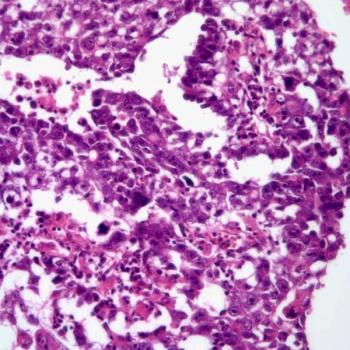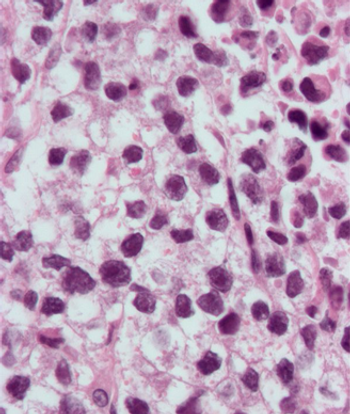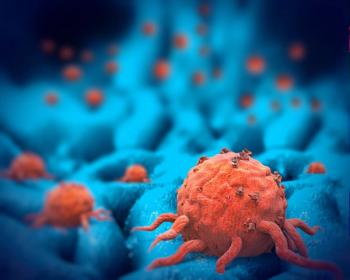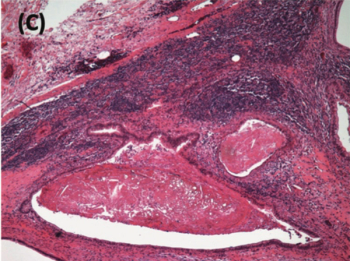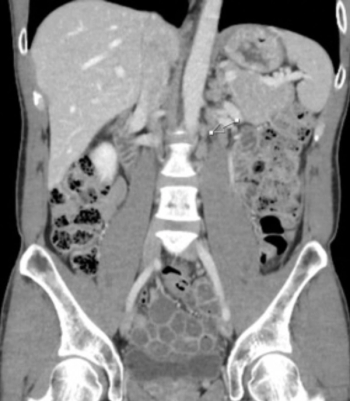
- ONCOLOGY Vol 13 No 11
- Volume 13
- Issue 11
Counseling Cancer Patients About Changes in Sexual Function
Cancer treatments often cause sexual dysfunctions that remain severe long after therapy is over. Nevertheless, sexual counseling is not routinely provided in most oncology treatment settings. Most patients and their partners can benefit from brief counseling that includes education on the impact of cancer treatment on sexual functioning; suggestions on resuming sex comfortably and improving sexual communication; advice on how to mitigate the effects of physical handicaps, such as having an ostomy, on sexuality; and self-help strategies to overcome specific sexual problems, such as pain with intercourse or loss of sexual desire. Brief counseling can be provided by one of the allied health professionals on the oncology treatment team. A minority of patients will need specialized, intensive medical or psychological treatment for a sexual dysfunction. In a large cancer center, such treatment could be provided as part of a reproductive health clinic serving the special needs of cancer patients. In smaller settings, the oncologist should build a referral network of specialists. Not all managed care organizations reimburse for these services, however. [ONCCOLOGY 13(11):1585-1591, 1999]
Sex is an integral component of the biomedical, psychosocial, and Darwinian models of human behavior. With it, interpersonal relationships are more intimate, romance is more meaningful, and life is more fun. Without it, our species would not continue.
These principles are so fundamental to health and well-being that their absence from the curricula of most medical schools, residency programs, and fellowships is ironic. But this may explain why many physicians feel ill-equipped to address issues of sexuality during the course of routine health care and in the management of patients with cancer.
When cancer strikes, it not only can steal time but also can detract from individuals self-image, feelings of worth, and sense of normalcy. All of these factors can negatively affect sexual function. By decreasing both quantity and quality of life, cancer can tear away years from life and life from years.
Clinicians involved in any facet of oncology must be alert to this aspect of the cancer patients experience. Indeed, despite many substantial gains made in the management of cancer in recent years, care is arguably incomplete without full attention to the patients personal response to illness, including sexual function.
In her thorough and somewhat provocative article, Dr. Schover draws upon a career of work to implore those in the oncology community to sharpen their diagnostic and therapeutic skills in this area. Her plea is simple, and is easier to put into action than it may appear at first.
Changing Perspectives on Sex With Aging
Perspectives on sex change profoundly during the course of a lifetime. Normal aging brings with it a natural decline in sexual function for most individuals. The Massachusetts Male Aging Study showed that the incidence of erectile dysfunction rises threefold between the fifth and eighth decades of life.[1] In fact, as many as one-third of older men without cancer report experiencing a significant impairment in sexual function.[2]
Despite these age-related changes, men may remain interested in sex and eroticism well into old age.[3] Sometimes, an occasional morning erection is enough for a man to maintain his self-image. Others learn that a firm penis is not a prerequisite for a satisfying sex life.
Despite the normal age-related evolution in sexual function, sex remains important for many. When queried hypothetically, some men express a willingness to trade away survival time in order to preserve or improve their sexual function.[4] However, others decline to exchange even a very short period of time for better sexual function.[5]
Young Men With Testicular Cancer
How a man is affected by cancer or its treatments is certainly informed by age, perception of cure, and type of therapy. For example, in young men with testicular cancer, sexual function may be impaired due to altered body image, despite normal erections. Rieker et al[6,7] showed that these patients experienced distress over performance and infertility, although not over libido. Those with ejaculatory dysfunction noted more strained intimate relationships and more psychological problems. However, compared to healthy controls, testis cancer patients, as a group, did not reveal any more difficulty with relationships or overall mental outlook.
Bloom et al[8] compared a population of men treated for testicular cancer with an aged-matched population treated for Hodgkins lymphoma. Those with testicular cancer were significantly more likely to report decreased sexual enjoyment. They were also more likely than the lymphoma group to report their health as excellent, however, leading the authors to conclude that the response to testicular cancer is more site-specific.
Older Men With Prostate or Bladder Cancer
Conversely, in older men with prostate or bladder cancer, sexual function may be impaired to a greater extent by physical erectile dysfunction.[9,10] Mansson and colleagues[11] studied patients undergoing cystectomy, comparing those who underwent reconstruction with a continent cutaneous ileocecal diversion with those who had a simple conduit diversion. Men in both groups suffered equivalent declines in health-related quality of life related to sexual problems, disturbed partner relationships, and emotional dysfunction.
Other researchers have shown that such decreases in disease-specific domains can be reversed with treatment of the erectile dysfunction by placement of an inflatable penile prosthesis.[12]
In the current era of widespread screening for prostate cancer, many patients are diagnosed with early-stage tumors that are managed aggressively and presumed curable. This approach may come with a great human cost in terms of sexual function. With patients diagnosed at ever younger ages, the quality-of-life impairments often associated with treatment may have a long-lasting impact. The popularity of nerve-sparing prostatectomy for men (and also breast-conserving surgery for women) attests to the great interest in this topic.
Discussing Sexual Issues With Patients
Some contend that two questions in the minds of all patients during all clinical encounters are, Is it cancer? and Can I still have sex? While this statement may seem to be hyperbolic, physicians typically do overlook at least one of these issues that weigh so heavily on our patients minds.
As Dr. Schover correctly points out, we are often too embarrassed to bring up a topic we perceive as delicate. Yet, our own anxieties about talking about sex generally exceed those of our patients. Often, all that is required is to broach the topic, allow patients a safe environment in which to vent their fears, and provide the reassurance that they need (see Case Report). In so doing, we are treating the whole patient and not just the cancer.
Case Report: Broaching the Subject of Sexuality
Recently, a 56-year-old man came to me for a second opinion on a moderately high-grade prostate cancer that had been diagnosed almost 9 months previously. His general health was excellent, and he had been strongly encouraged by his primary urologist to undergo a radical prostatectomy.
Although the patient was leaning toward that option, he remained terrified of the risk of impotence. Despite a competent evaluation by the urologist and a thoughtful recommendation from his primary care doctor, both physicians had overlooked an important component of the patients sexuality. Because he had never married and did not speak of a partner, he was assumed to be relatively unconcerned about sexual function.
By addressing sex in gender-neutral terms, I was able to determine that the patient was, indeed, involved in a long-term romantic relationship with a younger man and was quite concerned about his ability to function after surgery. He had not even told his partner about his diagnosis, and yet he had been carrying around the anxiety for almost a year.
In an open, nonjudgmental environment, the patient began to feel more comfortable discussing his sexuality. With some encouragement, he returned with his partner for a follow-up visit and ultimately decided to undergo surgery. The patient later wrote a heartfelt letter of appreciation thanking me for helping him resolve his sexual concerns and reach a decision about treatment.
Clinicians also often overlook the sexual concerns of the young, single adult with cancer, such as the young man with testis cancer, young woman with breast cancer, or teenager with lymphoma. Given their lack of experience and self-confidence, these individuals may be even more reticent to bring up the topic of sexuality with their oncologists.
It is especially incumbent upon the clinician to talk about sex with the young adult with cancer, before, during, and after treatment. For such individuals, the difficult questions may be, Should I tell a new romantic interest about the cancer on the first date, or should I wait? Of course, these problems are relevant for the single patient of any age.
As Dr. Schover points out, a sensitive, open-minded, and forthright attitude about issues of sexual function is always appropriate when caring for patients with cancer. While a multidisciplinary team approach may be more efficient, sexual counseling often can be carried out very effectively with a relatively small investment of time by the oncologist. Referral for further intervention can still be made available for patients who need it.
Cancer affects quantity and quality of life. The challenge for oncologists is to address both components with compassion.
References:
1. Feldman HA, Goldstein I, Hatzichristou DG, et al: Impotence and its medical and psychosocial correlates: Results of the Massachusetts Male Aging Study. J Urol 151(1):54-61, 1994.
2. Litwin MS: Health-related quality of life in older men without prostate cancer. J Urol 161(4):1180-1184, 1999.
3. Mulligan T, Moss CR: Sexuality and aging in male veterans: A cross-sectional study of interest, ability, and activity. Arch Sex Behav 20(1):17-25, 1991.
4. Singer PA, Tasch ES, Stocking C, et al: Sex or survival: Trade-offs between quality and quantity of life. J Clin Oncol 9(2):328-334, 1991.
5. Albertsen PC, Nease RF Jr, Potosky AL: Assessment of patient preferences among men with prostate cancer. J Urol 159(1):158-163, 1998.
6. Rieker PP, Fitzgerald EM, Kalish LA, et al: Psychosocial factors, curative therapies, and behavioral outcomes: A comparison of testis cancer survivors and a control group of healthy men. Cancer 64(11):2399-2407, 1989.
7. Rieker PP, Edbril SD, Garnick MB: Curative testis cancer therapy: Psychosocial sequelae. J Clin Oncol 3(8):1117-1126, 1985.
8. Bloom JR, Fobair P, Gritz E, et al: Psychosocial outcomes of cancer: A comparative analysis of Hodgkins disease and testicular cancer. J Clin Oncol 11(5):979-988, 1993.
9. Talcott JA, Rieker P, Propert KJ, et al: Patient-reported impotence and incontinence after nerve-sparing radical prostatectomy. J Natl Cancer Inst 89(15):1117-1123, 1997.
10. Litwin MS, Hays RD, Fink A, et al: Quality-of-life outcomes in men treated for localized prostate cancer. JAMA 273(2):129-135, 1995.
11. Mansson A, Johnson G, Mansson W: Quality of life after cystectomy: Comparison between patients with conduit and those with continent caecal reservoir urinary diversion. Br J Urol 62(3):240-245, 1988.
12. Gerharz EW, Weingartner K, Dopatka T, et al: Quality of life after cystectomy and urinary diversion: Results of a retrospective interdisciplinary study. J Urol 158(3; pt 1):778-785, 1997.
Articles in this issue
over 26 years ago
NCI Embarks on Quality Care Mapping Initiativesover 26 years ago
ASCO Praises Patient Protection Bill Passed by Houseover 26 years ago
Pain Management in Patients With Advanced Prostate CancerNewsletter
Stay up to date on recent advances in the multidisciplinary approach to cancer.


